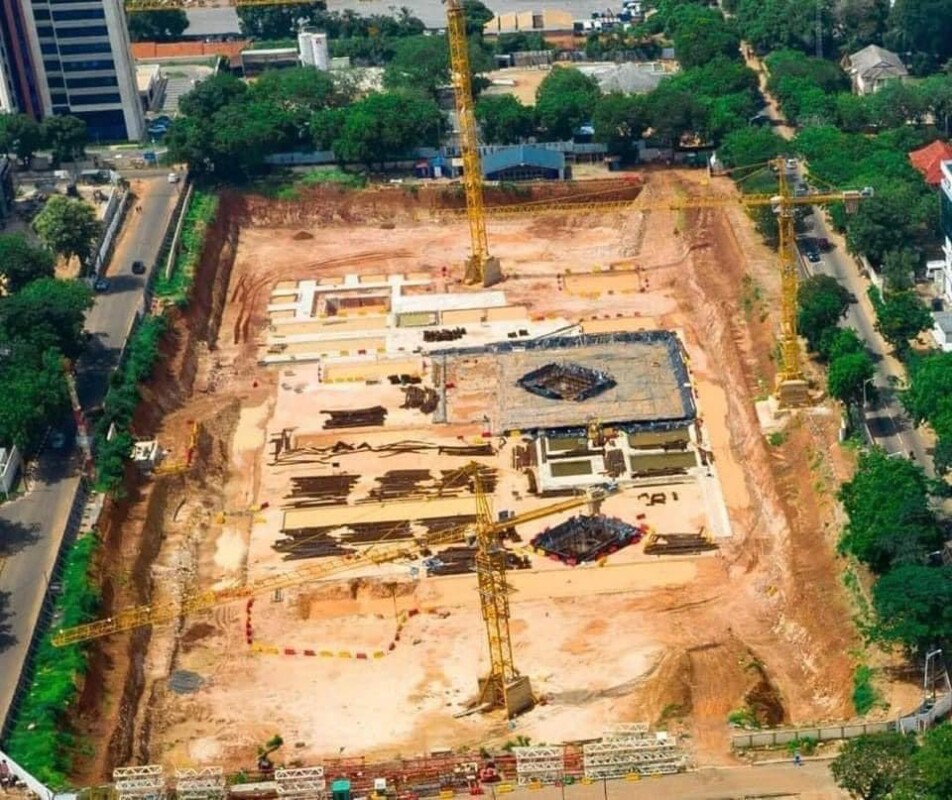Ghana’s world’s most expensive hole to be converted to national cultural convention center

Once hailed as a divine promise, now dubbed the “world’s most expensive hole”—Ghana’s infamous National Cathedral project is being resurrected, not as a house of worship, but as a temple of culture.
The government of Ghana has announced plans to convert the stalled National Cathedral project site into a National Cultural Convention Centre (NCCC).
GTA Announces Plans to Create Ghana’s First Amusement Park
According to a policy document under the new 24-hour economy initiative for culture, creative arts, and tourism dubbed “SHOW24,” the NCCC will be developed in partnership with the AfCFTA Secretariat.
It is envisioned to become Africa’s leading venue for international exhibitions, film festivals, trade shows and summits.
The National Cathedral project was initially proposed in 2018 under the administration of former President Nana Akufo-Addo. The project, which began as a non-denominational Christian worship center, has been a source of significant controversy in Ghana.
Critics have long slammed the project as a financial black hole. Over GHC 399 million (about $33 million) in taxpayer funds was sunk into the site before construction stalled.
Ghana introduces 5-day visa policy to attract tourists and investors
This led to calls from opposition parties, civil society organizations, and some clergy for the project to be halted or thoroughly reviewed. The original plan for the cathedral included chapels, a baptistery, a music school, an auditorium, an art gallery, and Africa’s first Bible Museum.
The transformation of the site is part of a broader plan to revitalize the creative arts, culture, and tourism sectors as pillars of economic development. Feasibility studies for SHOW24 are scheduled for Phase 1 (2025-2026), with full commissioning of the NCCC expected by Phase 3 (2028-2030).
Ghana achieves 97% reduction in malaria deaths
This marks a significant shift in the use of the controversial site. In the end, Ghana’s most expensive hole may finally be filled—with culture, commerce, and controversy.
What do you make of this initiative?

 Sports Minister dares GFA to “Be bold” and name author of unsigned statement on Black Stars budget
Sports Minister dares GFA to “Be bold” and name author of unsigned statement on Black Stars budget  DR Congo: Ex-justice minister convicted of embezzlement in construction project
DR Congo: Ex-justice minister convicted of embezzlement in construction project  Ghana to Reopen Embassy in Tehran on September 16
Ghana to Reopen Embassy in Tehran on September 16  Burkina Faso Passes Bill to Outlaw Homosexual Acts
Burkina Faso Passes Bill to Outlaw Homosexual Acts